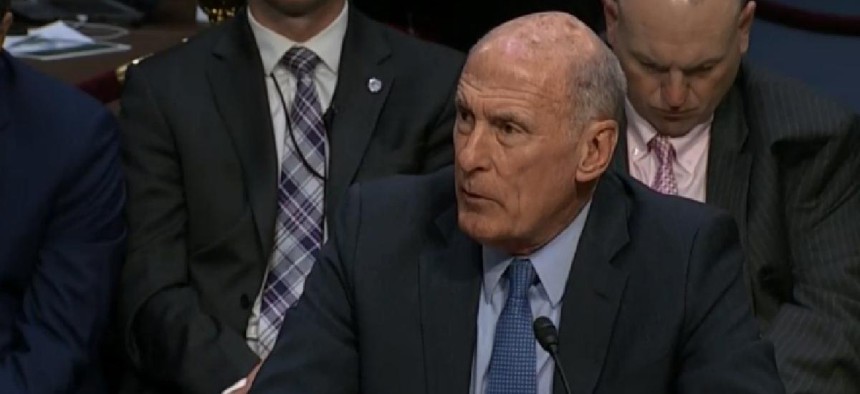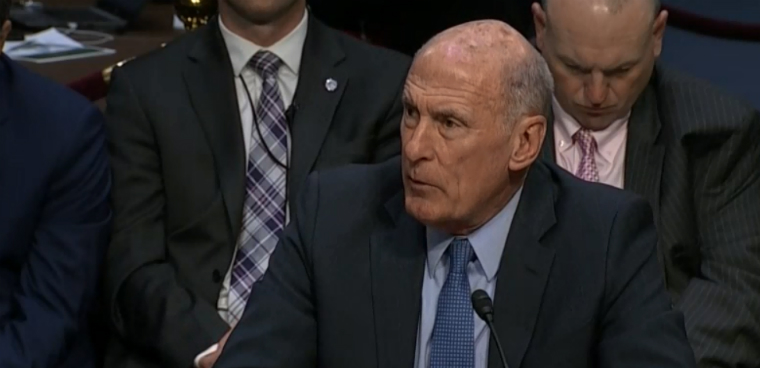Online influence isn't just about elections, intel chief says

Director of National Intelligence Dan Coats highlighted foreign information operations as a key priority.

DNI Coats testifies in the Senate March 6 2018
Cyber threats and malign foreign influence continue to be a top intelligence concern and priority for Director of National Intelligence Dan Coats ahead of -- and beyond -- the upcoming U.S. midterm and presidential elections.
"The cyber threats to the U.S. are not just limited to U.S. elections, a point that is too often missed in the crush of our 24-hour news cycle," Coats said during his keynote speech at the Intelligence and National Security Summit Sept. 4.
"Foreign influence efforts online are being used around the globe, not just for elections," Coats said. "This threat more than any other demonstrates how the interconnectedness of our world."
Interconnectivity "has a downside," Coats added. The weaponization of cyber tools and "relative lack of global guard rails in the cyber domain significantly increases the risk that a discrete act will have enormous strategic implications," he said.
Coats said the good news is that intel operators have the ability to locate cyber adversaries. "Every kind of cyber operation -- malicious or not -- leaves a trail" that's traceable "back to their sources," he said.
For John Rood, Defense Department undersecretary for policy, the concern is more about how cyberattacks in combination with physical damage could topple U.S. infrastructure.
The U.S. has crossed the threshold of experiencing a "major cybersecurity attack" many times, Rood said during a panel on national security challenges, and the real threat is "when we'll see an embedded activity in another physical activity," such as a kinetic attack -- air, land, sea -- or manipulation of the electromagnetic spectrum.
The key is "coming up with the right strategic approaches to deal with those evolving [threats]" to protect our networks and work better with domestic agencies.
George Barnes, deputy director of the National Security Agency, emphasized the critical need for partnerships in cybersecurity and that intellectual property theft could be more detrimental than a single cyberattack.
"Our information is no good unless we get it into the hands of the heads of critical infrastructure, the Defense Department, and others in the government and their networks," Barnes said.
"While I don't see a dramatic cyberattack coming at us, every day there are small leaks," Barnes said.
"It pains me to see the core of how we've defined ourselves over the last century as far as innovation, be continuously pummeled by external nation states and non-nation-state-sponsored activity," he said.
Barnes said there should be a focus on appropriate defense, information sharing across government and with private industries to create a minimum of security in the U.S. and abroad.



